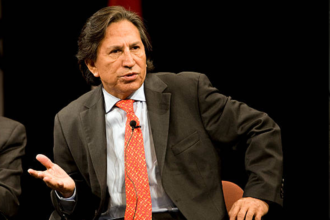Accusations from Ex-Partner Prompt Legal Action
Following major accusations by former President Alberto Fernández’s ex-partner, Fabiola Yáñez, Argentine prosecutors have started a well-publicized probe into him. Yáñez, 43, formally complained last week against the 65-year-old former leader, alleging physical violence had been committed throughout their relationship. After Fernández’s presidency ended in 2023, the relationship broke out; the accusations have now drawn major public and legal investigations.
Alleged Abuse and Forced Abortion
Yáñez revealed a history of alleged psychological threats and physical violence by Fernández in thorough evidence given from Spain. Her allegation of his pressuring her into an abortion lends yet more weight to the charges. Yáñez remarked in her testimony, “I felt trapped and terrified.” “The physical and psychological mistreatment I went through was beyond what anyone should have to deal with.”
The accusations have generated much discussion and anxiety among Argentinean officials, which is why prosecutors acted. Rejecting the charges, Fernández has labeled them as baseless and meant to damage him. In a statement, Fernández said, “These claims are false and baseless.” “I am convinced the investigation will clear my name; I have never harmed Fabiola in any form.”
Media Exposure and Public Outrage
Once images from local media surfaced that seemed to depict Yáñez with apparent injuries—including a black eye and bruises—the inquiry attracted a lot of public interest. The public and media have responded strongly to these pictures, generating cries for responsibility and resentment. Together with Yáñez’s testimony, the images have sharpened the examination of Fernández’s behavior and spurred a more general debate on domestic abuse and public figure responsibility.
Responding to media attention, Fernández sought to minimize the harm by implying that Yáñez’s black eye came from a “cosmetic treatment.” Many other fields have had doubt and criticism directed toward this justification. “This is an attempt to trivialize a dire situation,” stated one observer. “The claims and data given deserve careful and objective research.”
Legal Proceedings and Future Steps
Seeking to press charges against Fernández, prosecutor Ramiro Gonzales formally asked the court on Wednesday. This legal action signals a turning point in the inquiry, as the court will now determine whether to proceed with official charges. A judge will review the data and decide on legal procedural actions.
Under a travel ban, Fernández cannot leave the nation as the inquiry advances, hindering his ability to participate in the judicial procedures. This limitation emphasizes the gravity of the matter and the importance of closely reviewing the allegations made against him. Stressing the need for the judicial system to follow its course and the need for justice, a legal expert said, “The court’s ruling will be absolutely vital in addressing the claims and guaranteeing responsibility.”
Fernández's Political Background
In the early 1980s, during the latter days of Argentina’s military dictatorship, Alberto Fernández started his political career. Rising in politics, he first served as Chief of the Cabinet of Ministers under President Néstor Kirchner and became President of Argentina from 2019 to 2023. Prominent on the national and international scene throughout his career, Fernández promoted several programs and changes.
The present research on his behavior clouds his political legacy. The claims and the ensuing legal procedure could affect how Fernández is seen and evaluated throughout history. The developing judicial drama reminds us sharply of the more general problems of justice, responsibility, and power still relevant in Argentine society.
Legal observers and the general public will be keen to observe as the inquiry continues. The result of the legal procedures will not only define Fernández’s political and personal destiny but also consider the efficiency and impartiality of Argentina’s court system in handling grave claims against well-known personalities. The case emphasizes the requirement of due process and a thorough and objective review of the evidence.








